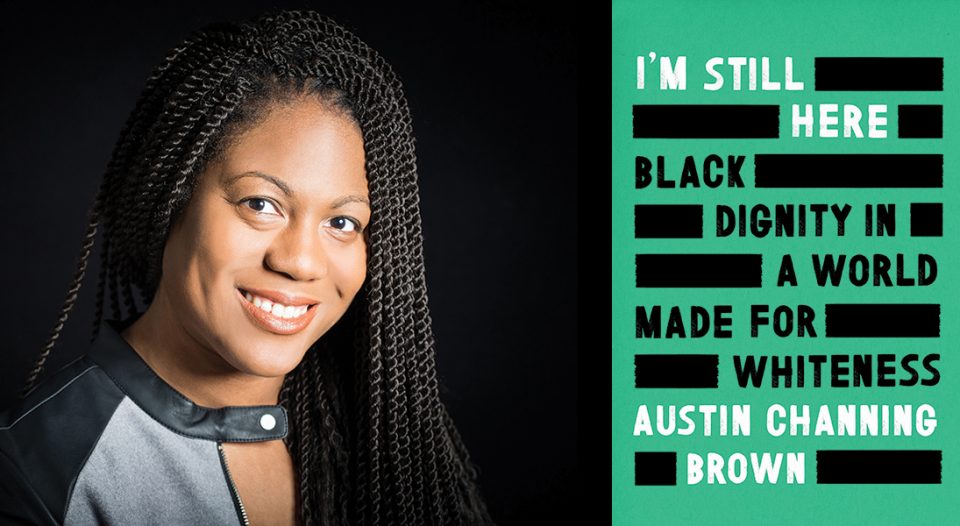Austin Channing Brown writes, preaches and teaches about racial justice. Her new book, I’m Still Here: Black Dignity in a World Made for Whiteness (Convergent, 2018)—which made Amazon’s top 20 best-sellers list when it was released—is partly an account of her experiences navigating majority-white schools, ministries and organizations, and partly a call to action for the work of meaningful reconciliation.
Living Lutheran spoke with Brown about what she hopes Lutherans and others in the mainline tradition will take away from I’m Still Here.
Living Lutheran: Why did you decide on writing this book, and why now?
Brown: I began to realize how many black girls were like me. They were in ministries where they didn’t feel seen, where they didn’t feel heard. They were surrounded by whiteness. They were passionate about justice. And they were being hurt and feeling isolated and alone because there were only two or three of us. I really wanted to say, “You are not alone.” It was time.
What do you hope the Lutheran reader—and the mainline church more broadly—hears in your story?
The thing that’s most important to me is that talking about whiteness is only a fraction of the job of pursuing racial justice. And I think the church is not great—but getting better—at naming whiteness. But that’s not the end—that’s the beginning.
We still need to analyze our policies. We still need to think about our practices. We still need to pay attention to who is in power and who has influence. And we still need to get better at acknowledging the inherent dignity of people of color. Not the value they bring to your website; not your hopes for being seen as progressive; not what diversity can do for you; but the inherent dignity of people of color—and of, in this book in particular, black folks. That’s what I hope the church hears and sees and takes to heart.
The thing that’s most important to me is that talking about whiteness is only a fraction of the job of pursuing racial justice. And I think the church is not great—but getting better—at naming whiteness. But that’s not the end—that’s the beginning.
I saw tremendous pain and a love story all wrapped into one in this book. Would you say I’m Still Here offers a lot of hard truth about race and is a celebration of black culture? Is it both/and?
That was really, really important to me. Both. I’ll tell you why. One day I was teaching a class and a tall white kid joined in. He was taking it all in and you could see light bulbs going off left and right. And then during one of the discussions, he says, “I’m pretty sure this is going to come out funny. I hope you know what I’m trying to say.” And we all prepared ourselves to give this kid lots of grace.
And then he said, “I think I might be glad that I’m a white guy because what you are explaining sounds really hard and I don’t know if I could do it.”
I thought, “Oh, bless your sweet heart.” But also: “What is he hearing?” This kid is not hearing about why I love being a black woman. This kid is only hearing why it’s hard to be a black woman in America. It was a wake-up call for me.
I told myself, “Austin, you cannot sit in one more room as the teacher or facilitator and only tell half of your story.” Yes, America is a difficult place to be sometimes. But also, I love being a black woman. So it was important for me that this book is both/and.
What feels hopeful to you right now?
I hope this doesn’t sound arrogant, but it’s the book sales [for I’m Still Here] because this book wasn’t supposed to be popular. It was supposed to be for a niche audience that is already committed to racial justice. It was supposed to be for black women who occupy white spaces a lot. It was supposed to be for white allies who wanted to do more. But all those groups were supposed to be small. It’s mind-boggling, and it also produces a lot of hope because maybe we’re not so niche after all. Maybe we are bigger and stronger than I realized, and that feels really, really hopeful.





